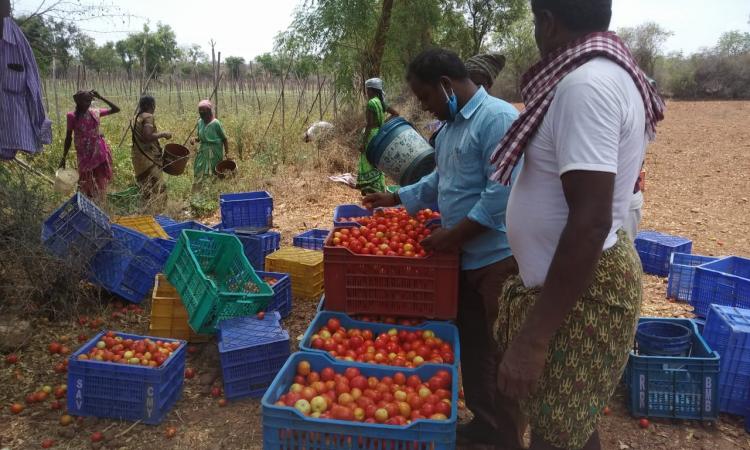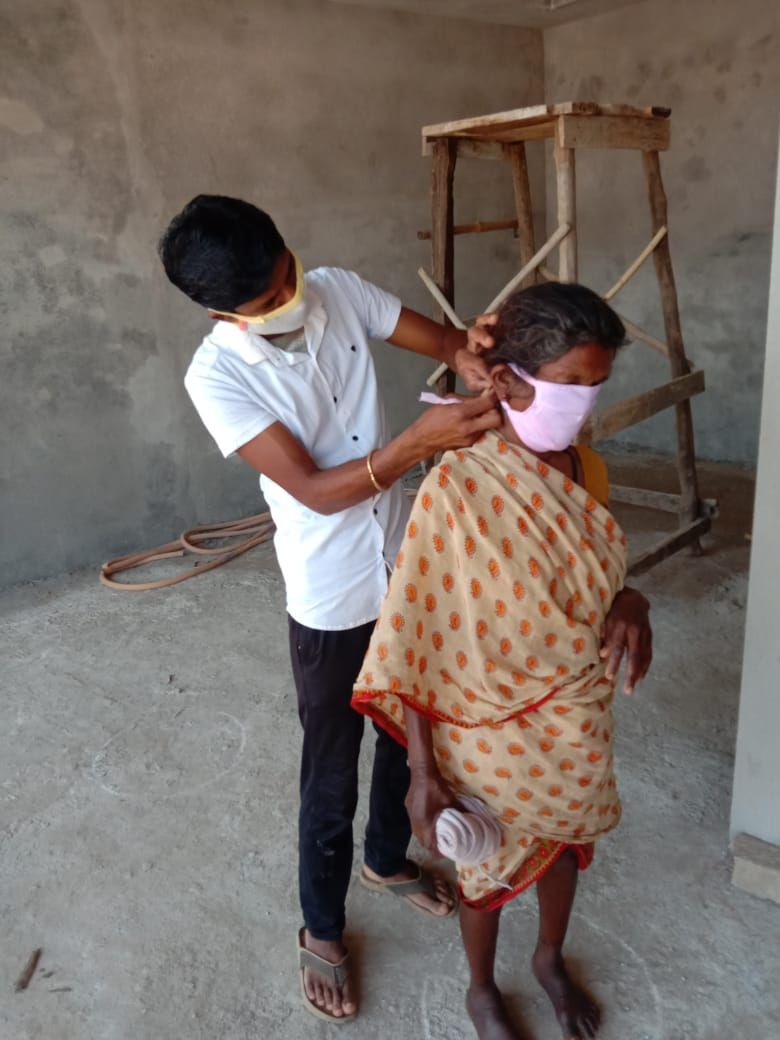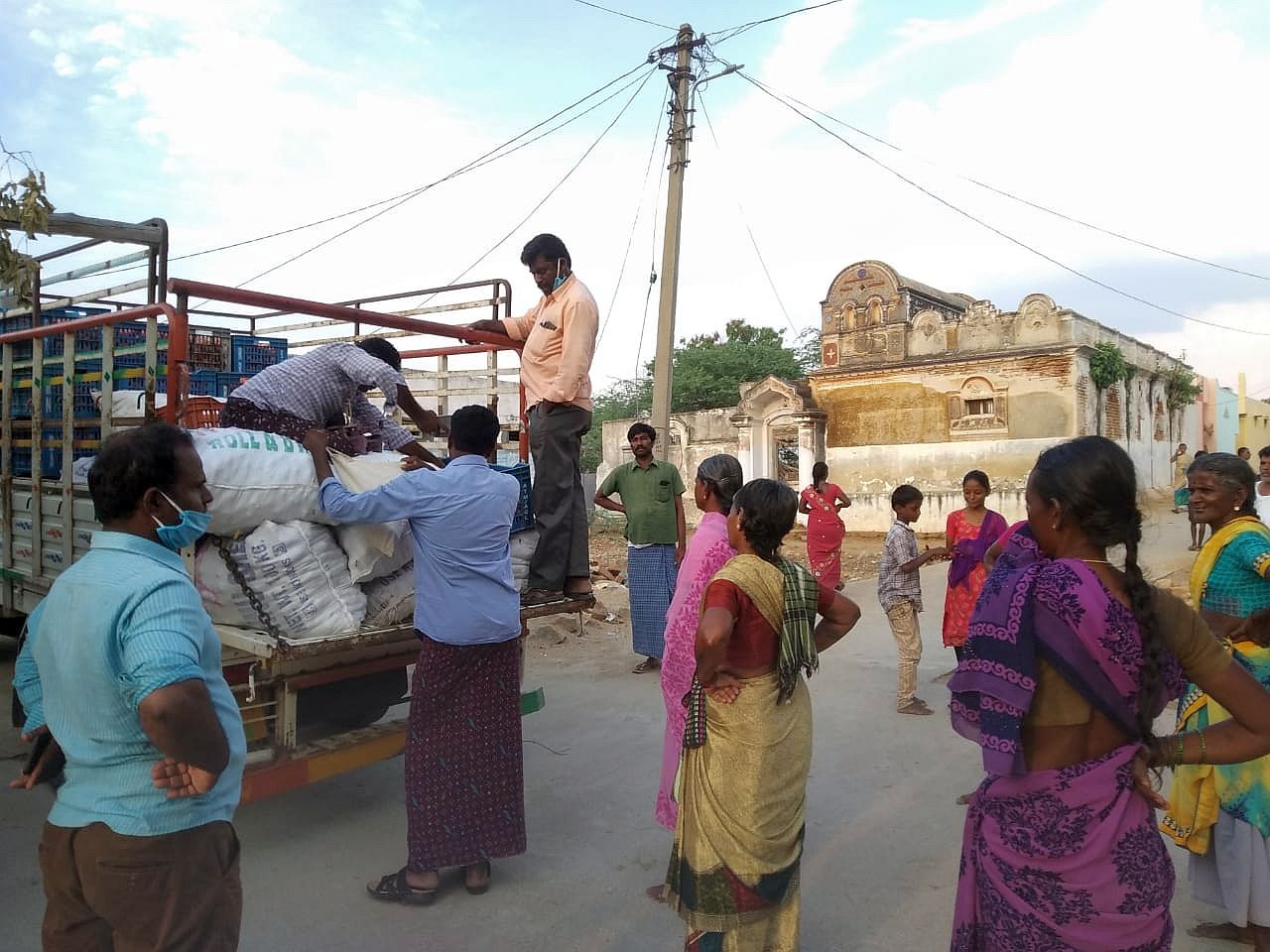
Covid-19 will have major implications in rural areas where the Foundation for Ecological Security (FES), a non-profit organisation has been working towards conservation of natural resources through collective action of local communities. Experience indicates that the complete lockdown to contain the spread of the disease has resulted in loss of rural incomes. The risk of spread of the virus too has increased with migrants returning to villages. This is true for FES’s and its partner's project areas spread across diverse ecological and social geographies.
Community institutions that were set up for managing natural resources have risen to the occasion and are taking lead in the fight against Covid. These institutions, given their rootedness in the communities in which they function, are effectively spreading awareness about the pandemic, providing immediate relief support and are helping people gain access to government support.
Gram sabhas try to counter Covid
Gram Sabhas vested with community forest rights under the Forest Rights Act (FRA) in Kalahandi district of Odisha have taken lead in responding to Covid-19 pandemic. These village institutions have used reserve funds available with Gram Sabhas from forestry operations like bamboo harvesting and sale for providing food grains to poorest of the poor families, and soaps to all households in the villages apart from generating awareness and enabling access to food and income security schemes. The efforts covered 350 households.
Michasola Gram Sabha under Tal-Jaring Gram Panchayat of Junagarh block provided 10 kgs of rice each and cooked meals for 10 poor individuals, who had no families to lean upon. The support was extended a week before government support reached these people. The Gram Sabha also approached the Block Development Officer for enrolling these people under the National Food Security Act (NFSA). The NFSA cards were issued to these people within five days.
Similarly, Gram Sabhas of Lamer, Pipadi, Tarkabahali villages of Barabandh Gram Panchayat of M. Rampur block passed resolutions for adhering to norms and advisories issued by the government on hygiene and physical distancing. These Gram Sabhas used INR 6000 from their funds to purchase and distribute soaps and liquid hand wash to 150 households in the villages for promoting hygiene during the pandemic.
Such efforts taken up by the Gram Sabhas are very timely and are helping communities respond effectively to the pandemic. These efforts were supported by Seva Niketan, a partner organisation of FES.
Village institutions in action

After the lockdown was announced, village elders of Jhulup, Narna and Parsatola villages in Mandla district, Madhya Pradesh deliberated on the need to procure masks and soaps for their villages. The executive committee members of the village took consent of all of its members through telephone and decided to purchase masks and soaps with the village fund as the Panchayats were unable to provide these to every household. Seeing this, the Gram Paryavaran Samitis of Mohgaon, Umardehi and Mowala have also decided to procure masks using their village fund.
As the villagers were finding it difficult to procure masks from the nearby town, they decided to buy cloth and make masks in their respective villages. Panchayat Sachiv and some of the rural cadre helped the villages in buying required cloth material from the nearby town. Some of the villagers prepared the masks using the video circulated by FES team members on ‘how to make masks’. A total of 29 village institutions from Baihar and Paraswada block provided 3846 masks to 2020 households and 1442 soaps to 1048 households.
Similarly, Saraswahi Prakriti Sansadhan Prabandhan Samiti of Niwas block, Mandla district requested their Sarpanch to make arrangements for migrant workers coming back to their villages from Jabalpur. Apart from arranging health check-up by the community health workers, the Panchayat used untied funds of the 14th Finance Commission to provide masks to the migrant workers.
Communities come together to help others in distress
People belonging to marginal, small and medium farming households from 8 Panchayats, covering 20 villages in Pratapgarh, Rajasthan are contributing grains from their recent rabi (winter) crop harvest for donating to the poor and needy in the region. A tractor was taken from village to village where people voluntarily contributed wheat, gram, soyabean and other foodgrains. Some of the better-off families also contributed items like oil, sugar and tea leaves along with grains.
Through the initiative, a total of 627 quintals of grain was collected and handed over to the control room at Pratapgarh, so that the administration can distribute it through proper channels. Few Panchayats have kept some ration kits for quick distribution to the needy in the villages.
This thoughtful and timely initiative was led by the collective efforts of the Panchayat leaders, village development officials, village institutions and rural cadres. Many other villages have also expressed their willingness to contribute grains and efforts are on for undertaking similar drives in other areas of the region with the help of the district administration and community leaders.
Village collective helps farmers in lockdown
The lockdown is impacting all, but the impact on some is greater and more immediate. The farmers in Papannagaripalli village in Anantapur, Andhra Pradesh feared a huge loss in vegetable cultivation due to lockdown and closure of transportation and markets. The standing crops of brinjal and tomato were likely to perish on the field in absence of buyers, leading to losses to the farmers.

The village institution, after discussions with the community resource person (CRP) and FES team stepped in and offered to purchase the standing crops from farmers for INR 5,500. The rate was decided based on the prevalent wholesale rate in the area. The village institution would arrange for harvesting the crop and its sale and will then pay the farmers the committed price.
The farmers were happy with the timely initiative and agreed to sell the crop to the village institution as they were getting the market rate at their doorstep, without having to worry about harvesting, transportation etc. Some farmers also offered their produce for free. The total yield of 1,158 kgs tomatoes, 55 kgs of cluster beans and 700 kgs brinjal from around 3.5 acres of land was taken to interior villages for sale, where such vegetables are not available. The poor and vulnerable in these villages were given the vegetables for free. The total cost including payment to farmers, harvesting and transportation for sale came to about INR 14,000.
Even though the total earnings from the initiative have been a minimal INR 5,500, the members of the village institution are happy that they were able to help the farmers as well as supply vegetables to some of the remotest village in the region and also provide free vegetables to many poor households. They plan to bridge the losses through FES’s help.
The initiative has found many takers in the region and more farmers are now requesting for such aid. The team is in discussion with villages for assisting more farmers through such initiatives. The work continues and the organisation is responding based on the felt-need in the field. Institutions continue to play an effective role in providing support at the field level to rural communities to deal with the pandemic.